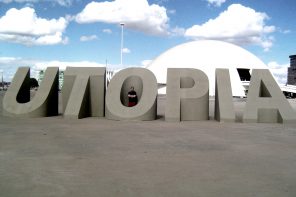
“What do academic librarians do, anyway?” Librarian positions, like libraries, are widely varied. My colleagues and I use our advanced degrees in many different ways. However, the Western European Subject Studies (WESS) Recruitment to the Profession Committee has one take, and you can watch WESS librarians with literature degrees discuss their experiences here.
Personally, I chose to become a librarian to use my academic and language skills every day, which is why I find my job engaging and fulfilling. I start the day helping a student find examples of the Baronetage and the Navy Lists (Jane Austen), buy books in and on French literature of all periods, then walk home after an eighteenth-century poetry workshop sponsored by the English department. Librarians are true Renaissance people.
In my position, I buy both literature (writ large—including video games) and literary criticism. Keeping abreast of developments in theory and trends in scholarship is exciting. Animated conversations lead me to discover the projects of “my” faculty members and students. I stay alert for new and upcoming authors, trends, presses, and publishers, accessing my “crystal ball” of sources: scholarly journals, book reviews, blogs, and podcasts. Current favorites include the New Books Network, CBC Writers and Company, and La librarie francophone.
Whether it’s putting on the deerstalker to track down a mystery citation, finding someone the perfect book or article, or using my background in the field to make connections that aren’t obvious to others (surprise: graduate students in Spanish don’t automatically think of Bossuet), it’s satisfying to match a person with just the right piece. Sometimes it’s hard to stop myself from looking further and further into a question. There’s so much more that could be done on any topic and surely someone would want to work on. . . . I have a long list of potential dissertations.
Undergraduate and graduate students alike attend my instruction sessions. Often sessions are in the context of a class: in an hour, a reception study on twentieth-century writers changes from bewildering to possible. As pedagogy and technology change around me, (re)learning how to teach is a never-ending but exciting challenge.
Combining subject-specific expertise with library science expertise gives me the best of all possible worlds. Lest I sound too much like Candide, I can assure you that every academic institution has its own quirks, foibles, and the dreaded committee meetings. But having reached the point in my career when I no longer have to do the worst task ever, filing microfiche, I am happy to cultivate my garden and those of “my” departments.
Sarah G. Wenzel holds degrees in Library Science and French Studies from the University of Illinois at Urbana-Champaign. She’s combined and expanded those interests in a variety of positions over the past seventeen years while working at Boston University, MIT, Columbia University, and now the University of Chicago Library where her official title is Bibliographer of Literatures for Europe and the Americas. She currently serves as liaison between the American Library Association and the MLA. Like all librarians, she enjoys answering questions.







I did my PhD while working as an academic librarian. In Australia we are not tenure-track staff in the library so I have become an adjunct academic alongside my library job, but the cross-over is considerable. I am now the Special Collections Librarian, and I have published edited collections of letters held in Special Collections, and given lectures on literary topics featured within the collections, as well as pursuing other research interests outside the library. Much of the library work I do is helping researchers and being an active researcher myself makes this so much easier.
So interesting. I’m working as an academic librarian, especially for English literature department. Are there any tips for supporting faculties? I got lots of requests from them, but I’m not sure I’m doing right sometimes. 🙂
Requests, in my context, are usually a good sign that the faculty know you’re there and willing to support them. There is a group of academic librarians, the Literatures in English Section (LES), that asks each other questions, looks for new ideas for supporting faculty, new teaching tips, etc. (I’m a member.) You can join the listserv at http://www.ala.org/acrl/aboutacrl/directoryofleadership/sections/les/leslistserv. My academic background is in French literature and history; I’ve learned a lot from my LES colleagues.